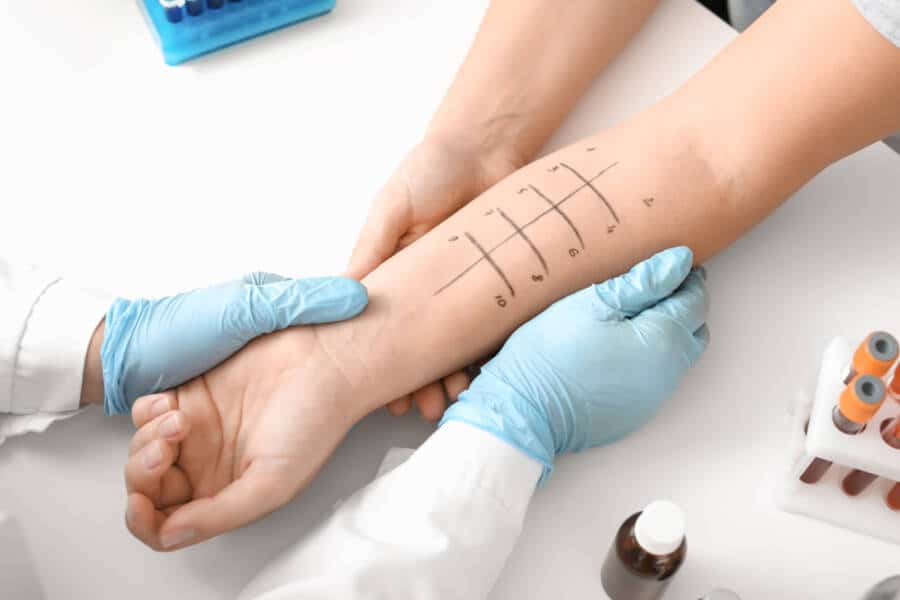Can Allergy Sufferers Travel Safely? Absolutely!
I think we can all admit that traveling is one of life’s greatest joys. But for millions of people living with allergies, it can be also one of life’s greatest challenges. Whether you are in control of your body and great at managing your allergies, leaving the comfort and safety of your home often means facing a world full of unknowns.
Unfortunately, a new environment and unexpected exposures can quickly turn the trip of your dreams into a dangerous situation. But don’t get me wrong! It doesn’t mean that you should avoid traveling!
With the right planning and awareness, you can do whatever you put your mind to! So, traveling with allergies doesn’t have to be impossible!
As someone who has personally experienced the anxiety and uncertainty that can come with traveling with allergies, I totally understand how overwhelming it can feel. Will the airline be able to offer me immediate help? Will the restaurant staff understand the severity of my allergies? What if my medication gets lost? – are just some of the questions that make me go crazy.
Every traveler’s needs are different and what works for one person may not work for another. However, this small guide is extremely flexible and will offer you advice designed to support a wide range of allergy situations.
Read on and discover these 12 potentially life-saving tips for traveling with allergies.

12 Tips to Manage Your Allergies While Traveling
1. Research your destination
It’s essential to know the advantages and disadvantages of the place you are traveling to. So, take your time and do your research. Some of the most important factors you need to take into consideration are the climate, common allergens, and pollen counts. I would also advise you to also look for information about the place’s medical system.
For example, I traveled to Cairo, Egypt last year. Overall, I had a wonderful experience, but I was surprised to see the differences between the 5-star resort I booked and the real lifestyle. The people in Egypt are very poor and are basically struggling to survive. So, I was extremely anxious thinking about the possibility of dealing with a severe allergic reaction there.
I read a lot of reviews before my travel and I saved some emergency contacts on my phone. However, I am not going to lie, the Egyptians’ life was way different than I imagined.
The information I found about Cairo helped me understand the potential triggers, so I felt in control.
2. Pack the necessary medication
It doesn’t matter where you are traveling to, you should always pack your medications. I advise you to have an adequate supply of your allergies, including inhalers, antihistamines, nasal sprays, and epinephrine autoinjectors.
Whenever you are traveling by plan, make sure to pack your medicines and place them in your carry-on luggage. So, in case of an unexpected situation you will easily access them.

3. Consult your doctor
If you are dealing with severe allergies or asthma, it’s always better to consult your doctor before traveling. The doctor can offer you personalized advice or even prescribe some extra medication. The preparation process is different and highly influenced by your final destination.
4. Wear a mask
I would recommend you wear a mask during your flight. I always do because I become extremely sensitive when I deal with dry air and low humidity. I did some research and learned that planes are notorious for their dry air which can exacerbate allergies. So, to combat any potential dangers, wear a mask and drink plenty of water.
5. Learn allergy vocabulary
It might sound crazy, I know. But there are a lot of tropical destinations where the locals don’t speak English. Learning a few phrases will help you order food and explain your condition. Some of the phrases I learned when I traveled to Turkey were ‘I have severe allergy to…‘, and ‘Does this contain…?‘
You shouldn’t worry about language, especially if we consider how easy is to use our phones to understand each other. But personally, I was more relaxed knowing that I would be able to ask for help in case of an unexpected situation.
6. Pack safe snacks
One of the things me and my wife always do is pack safe snacks. We love cuddling and watching movies in the night, at our hotel rooms. So, having some tasty, and most importantly, safe snacks, especially after spending the entire day exploring new places feels amazing.
I don’t recommend you rely on unfamiliar foods when traveling. So, make sure to bring trusted and safe snacks from home to avoid accidental exposure. This trick works best for long flights and for the destinations, you are not familiar with.
7. Notify the staff
Whenever you eat in a restaurant, make sure to notify the staff about your allergies. They will be extra cautious with your orders and recommend you allergy-friendly options.
You can also notify the hotels. If they are 5 stars, they can offer you some special services and remove feather follows, provide allergy-friendly bedding, or even allow you to store special foods.
8. Carry your medicines at all times!
Omg! I once had an awful experience in a 3-star hotel in Prague. I left our room just to ask for some extra information at the reception and ended up being blocked in a small lift. I didn’t have my medications with me because I was planning to quickly go back to my room. Well, my 10-minute trip to reception turned into a nightmare. They needed about an hour and a half to restore the elevator, and I experienced an asthma attack due to the dry air condition.
That time, I promised myself that I would never leave without my medicines.
9. Research local hospitals
I recommend you do this only if you are dealing with severe allergies. In case you are usually keeping your allergies under control, I don’t think that you should worry about how close the hospital is. Sometimes, overthinking can also turn a beautiful vacation into a bad experience.
However, I recommend you save the contacts of the embassy or consulate on your phone, especially if you are traveling to a country with poor living conditions. It’s better to stay in touch with the authorities and know exactly where to ask for help.
10. Always read food labels
Oh, I know how annoying it is to always have to check the labels, but trust me when I say that it’s extremely important! Food labeling laws vary by country. Ingredients may be listed differently or not at all. Be extra cautious when buying packaged foods in unfamiliar locations. If you are in doubt, don’t risk and eat anything that can put your life in danger!

11. Stay in accommodations with a kitchen
This is a great tip for those with severe allergies. For example, I usually travel with my wife and we always book a standard double room with breakfast included. Since I know exactly what I need to do to stay in control, I don’t feel the need to cook while traveling. But of course, we are all different.
I usually notify the staff from the breakfast hall about my problems and they recommend the best options for my situation. Letting them know about my specific allergies, reduces the risk of exposure.
12. Avoid high-risk activities
Even though some activities might be tempting, especially because you will be in that euphoric travel mood, be extra cautious with those who can put your life in danger. I recommend you stay away from anything that can ruin your trip. Going back home safe and alive is better than trying something too risky.
For example, I watched my wife learning how to make scuba diving, while I was silently suffering because I couldn’t join her. I decided to take a step back that day because just hours before our boat trip and scuba class I had an unexpected asthma attack. So, I felt that taking the risk was not an option and I preferred to stay safe on the boat while cheering up my courageous and spontaneous partner.
Before leaving, check out this sinus inhaler that can be easily found on Amazon! It basically changed my life, so trust me when I say that is totally worth your try.
If you liked the article, here’s what to read next: Never Mix These 5 Supplements With Prescription Drugs!













